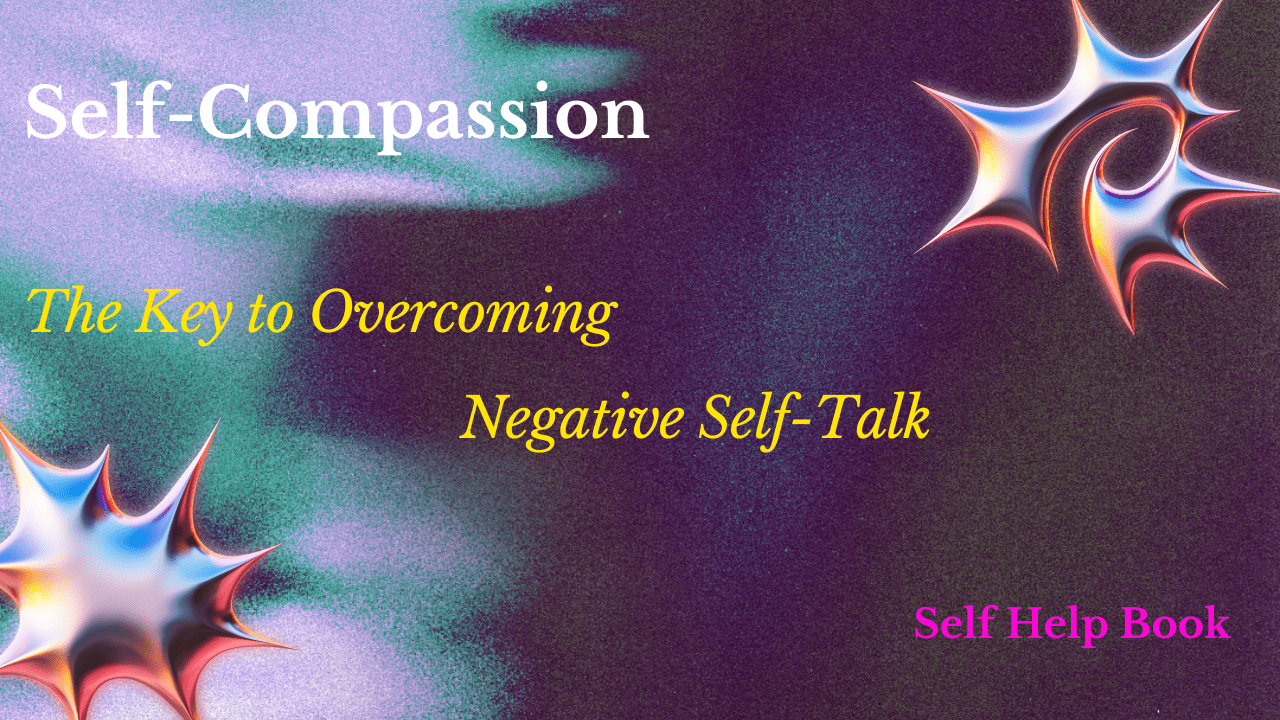In today’s world, we often focus on external success and self-improvement. But self-compassion can change our lives. It’s about treating ourselves with kindness, understanding, and acceptance. This approach can help us beat negative self-talk.
Negative self-talk can hold us back from feeling good and growing. By being kind to ourselves, we can change our inner voice. This shift helps us become more emotionally resilient and open to growth.
Self-compassion does more than just fight negative self-talk. It also boosts our emotional intelligence and self-acceptance. When we practice self-compassion, we see ourselves more clearly. This leads to better self-awareness and helps us face life’s challenges with strength and resilience.
Embrace Self-Compassion: A Path to Emotional Resilience
Self-compassion is a powerful tool for emotional resilience. It involves being aware of our pain and wanting to ease it with kindness. This builds a strong base of self-acceptance and emotional resilience.
Understanding Self-Compassion
Self-compassion has three main parts: mindfulness, self-kindness, and recognizing our shared humanity. Mindfulness lets us see our thoughts and feelings clearly, without harsh judgment. Self-kindness means treating ourselves with the same compassion we give to friends. Knowing we’re not alone in struggles connects us all.
The Benefits of Self-Compassion
Practicing self-compassion brings many rewards. Studies show it boosts emotional resilience, helps manage stress, and improves overall well-being. It also leads to better self-acceptance, healthier relationships, and more empathy for others.
| Benefit | Description |
|---|---|
| Emotional Resilience | Self-compassionate individuals are better equipped to bounce back from setbacks and manage difficult emotions. |
| Stress Management | Self-compassion helps reduce the negative impact of stress and promotes healthier coping strategies. |
| Well-Being | Self-compassionate people tend to experience higher levels of overall psychological and emotional well-being. |
| Self-Acceptance | Self-compassion fosters a greater sense of self-acceptance, allowing individuals to embrace their imperfections. |
| Empathy | Cultivating self-compassion can enhance one’s ability to empathize with others and respond with kindness. |

“Self-compassion is simply giving the same kindness to ourselves that we would give to others.” – Kristin Neff
Cultivating a Mindful Approach to Self-Compassion
Starting to feel more self-compassion begins with being mindful. We learn to notice our thoughts, feelings, and inner world better. This way, we can treat ourselves with kindness and understanding.
Mindfulness meditation helps us watch our thoughts and feelings without judgment. It lets us see ourselves with a gentle, non-critical eye. This change helps us stop being too hard on ourselves and start accepting and caring for ourselves.
Doing self-reflection and self-awareness exercises helps us understand ourselves better. By paying attention to our body, emotions, and thoughts, we can be kinder to ourselves.
Doing self-care activities like journaling, enjoying nature, or hobbies also helps. These activities help us take care of ourselves and feel more accepted and happy.
By being mindful, we can stop negative self-talk and start a kinder inner dialogue. This change helps us face life’s challenges with more emotional strength and understanding.
| Mindfulness Practices for Self-Compassion | Benefits |
|---|---|
| Meditation Journaling Mindful movement (e.g., yoga, tai chi) Nature-based activities | Increased self-awareness Reduced self-criticism Greater emotional regulation Improved well-being and resilience |
“The greatest gift you can give yourself is a little bit of your own compassion.” – Brené Brown
Self-Compassion: A Powerful Antidote to Negative Self-Talk
Negative self-talk can hold us back from growing and feeling good about ourselves. But, self-compassion is the key to overcoming it. By being kind to ourselves, we can change our inner dialogue to be more positive and supportive.
Identifying Negative Self-Talk
To beat negative self-talk, first, we need to know what triggers it. Think about the thoughts that often pop up in your mind. These might include:
- Harsh self-judgments and criticism
- Constant comparisons to others
- Dwelling on past failures or mistakes
- Catastrophizing or assuming the worst-case scenario
Replacing Criticism with Kindness
After spotting the negative patterns, it’s time to switch to kinder thoughts. Self-compassion means treating yourself with the same kindness you’d give a friend. Instead of being hard on yourself, speak to yourself with gentle, caring words.
“The greatest weapon against stress is our ability to choose one thought over another.” – William James
Using positive affirmations or encouraging yourself can help. This practice builds a more self-accepting and self-compassionate mindset. It can lessen the harm of negative self-talk and increase self-compassion over time.
Developing a Self-Compassionate Mindset
Building a self-compassionate mindset helps us beat negative self-talk and boosts our emotional health. By accepting ourselves and doing things that matter to us, we tap into the power of self-compassion.
Practicing Self-Acceptance
Self-acceptance is key to self-compassion. It means seeing our worth, even with our flaws. This view lets us treat ourselves with kindness, understanding, and a desire to grow, not harsh criticism.
Engaging in Self-Care Activities
Self-care is vital for a self-compassionate mindset. Doing things that make us feel good physically, emotionally, and mentally helps us feel more accepted and compassionate. This can include:
- Practicing mindfulness and meditation
- Engaging in physical exercise or outdoor activities
- Prioritizing adequate sleep and rest
- Exploring creative hobbies or pursuits
- Seeking support from loved ones or a mental health professional
By doing these things, we grow and believe we deserve kindness and care from ourselves and others.
“Self-compassion is about learning to treat ourselves with the same kindness, care, and understanding we would offer to a good friend.”
Conclusion
As we wrap up our look at self-compassion, it’s clear it can change our lives. It helps us grow emotionally and overcome negative thoughts. This practice lets us be kinder to ourselves.
We’ve seen how self-compassion boosts our mental health and reduces stress. It also helps us accept ourselves more and deal with life’s challenges better. By being mindful and kind to ourselves, we can stop self-criticism.
Keep going on your self-compassion path, knowing it’s a journey, not a finish line. Enjoy the ups and downs, and celebrate your small wins. With dedication and care for yourself, you can reach your full potential. You’ll build strong relationships and live a happier life.

